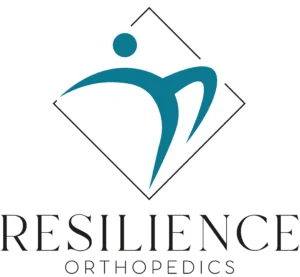Which insurance do you accept?
At Resilience Orthopedics we provide personalized concierge care and love to see new patients. Although we are not contracted with insurance companies, you can absolutely use your insurance benefits here.
When you visit, our staff will help you to get the maximum benefits from your insurance policy and will work with your insurance company to pre-authorize treatments.
As a specialist, Dr. Mehta takes extra steps to provide a higher level of care than you’ll find at offices that are limited by the restrictions imposed by various insurance companies. If you pay any more out of pocket, you will more than make up the difference in the level of care you receive.
Do you do consultations in Spanish?
Yes, we have translators to help with appointments in Spanish
What types of surgery do you offer?
Pamela Mehta is an experienced orthopedic surgeon and offers most types of surgeries, including joint replacement, ligament reconstruction, and arthroscopy.
She can perform surgery on any joint, and has a specific expertise in shoulder and knee surgery.
Dr. Mehta is an expert in minimally invasive surgery (arthroscopy). This type of surgery has a quicker recovery time and involves less scarring.
Read More
What if I have pain in more than one joint?
Sometimes pain in nearby joints, especially the ones below and above the joint in question, can be referred. This means you can have pain in one joint (such as your hip) but the actual problem is in another joint (such as the knee)
Other times, a problem that starts in one joint can cause you to move in a different way, leading to problems in nearby joints.
To find out which is causing the main problem, book an appointment with Dr. Mehta to determine why you’re in pain.
What are the signs that knee pain is serious?
There are 5 signs and symptoms that mean you need to get your knee pain evaluated as soon as possible:
- Your knee looks very swollen
- You can’t bend or straighten your knee fully
- Your knee is unstable or buckling
- Your knee is catching or locked in a certain position
- Your knee pain isn’t getting better
Read More
What are the signs that shoulder pain is serious?
There are 3 signs and symptoms that mean you need to get your shoulder pain evaluated as soon as possible:
- Your shoulder joint is unstable
- You get pain and weakness on certain movements
- You’re struggling to move your shoulder
Read More
Do all ACL tears require surgery?
Not all ACL tears need surgery. The decision to have surgery depends on several crucial factors, including:
- Your Age
- Your Activity Level
- The Extent of the ACL Tear
Seeing an orthopedist for a thorough evaluation is important to make a decision on the best treatment options available to you.
Read More
Can a torn meniscus heal on its own?
Meniscus tears, unfortunately, have a limited ability to heal on their own. This is because there is a restricted blood supply to the area.
This means that interventions such as surgical or non-surgical treatments are usually necessary to heal the meniscus.
Read More
How much does knee replacement cost?
We recognize that for many people, cost is a crucial factor. Several things can affect cost of knee replacement surgery including:
- Your location
- The hospital you select
- The complexity of your case
- Whether you have insurance coverage
You can get a better sense of the costs involved by speaking to a member of our team.
Read More
What is important to know after knee replacement surgery?
We have 5 main tips for recovering from knee replacement surgery:
- Follow a good exercise regime
- Pay attention to red flags such as excessive swelling, pain, or skin redness
- Keep in regular contact with your knee doctor
- Stick to the post-operative plan
- Don’t rush back to your normal life
Read More
How do I speed up recovery from a torn patellar tendon?
We have a few tips to speed up your body’s healing process:
- Follow your surgeon’s instructions
- Rest and elevate your knee
- Control your pain and inflammation
- Engage with physical therapy
- Be patient and consistent
Read More
How do I sleep with shoulder pain?
Shoulder pain can be incredibly difficult to sleep with, as you might not be able to sleep in your usual sleeping position.
We recommend a few methods of managing this including:
- Managing your pain levels with medications and hot/cold packs
- Working out a sleeping position that improves the pain
- Learning about sleep hygiene and lifestyle changes to help
Read More
What should I expect after arthroscopic shoulder surgery?
For most arthroscopic procedures you will be able to return home after a few hours of monitoring. You will receive care instructions for your shoulder dressing and will most likely need to wear a shoulder sling or immobilizer.
You can expect some pain and discomfort in the few days and weeks following your procedure. Dr. Mehta will arrange for appropriate pain relief and advise you on how to stay comfortable.
Mehta will recommend exercises that you should do regularly for several weeks after your surgery. She will also arrange for physical therapy if appropriate. She will also call you to check up on you during your recovery.
Read More
Why is a frozen shoulder painful at night?
Think of your shoulder like a door hinge. When it’s ‘frozen’, it doesn’t swing open or closed properly. So, when you lie down, it’s like someone’s squeezing that hinge, putting pressure on the joint.
Furthermore, at night, inflammation from a frozen shoulder often intensifies. This means more pain for you.
Read More
What if my shoulder bursitis won’t go away?
While symptoms of shoulder bursitis should improve with proper treatment, sometimes it can be resistant to treatment.
If you’ve taken the steps to rest and exercise your shoulder appropriately, fix your posture, taking over the counter anti-inflammatories, and using cold packs on the painful area, but the pain is still there, it’s time to talk to a doctor.
Book a consultation with Dr. Mehta to look at all treatment options, potential surgeries, and prevention of future recurrence.
Read More
Can I treat a shoulder dislocation myself?
You may have seen some people put the joint back in place themselves. This is often people who suffer from shoulder instability and have frequent dislocations. This can be dangerous, especially if this is your first dislocation.
Before treatment, an anterior dislocation requires careful examination by a healthcare professional. This should be followed by an x-ray to check for fractures. If there are no complications, we can use a shoulder relocation technique to treat your joint.
Read More
What’s the difference between shoulder dislocation and separation?
While the symptoms and causes of dislocation and separation can be similar, a shoulder dislocation is a more serious injury with more intense pain.
However, the treatment is very different. Treatment for shoulder separation relies on getting enough rest, taking pain relievers when necessary, and movement restriction. This is also the case for dislocation, but the joint needs to be assessed and safely relocated first.
Read More
What should I expect after hand surgery?
For most types of hand surgery, you will be able to return home after a few hours of monitoring post-procedure. Dr. Mehta will arrange for appropriate pain relief and care instructions for your hand dressing.
You may have your hand immobilized in a bandage or splint for a few weeks after the procedure. You will have a small scar over your hand or wrist following this procedure.
You may have some restrictions on activities that you can do, and you may require intensive physical therapy for several weeks.
Read More
What’s the difference between carpal tunnel syndrome and De Quervain’s tenosynovitis?
Carpal tunnel syndrome tends to cause symptoms in your palm, thumb, and first two fingers. This differs from de Quervain’s tenosynovitis, which gives symptoms in the wrist and base of your thumb.
An orthopedic specialist, such as Dr. Pamela Mehta, can differentiate between the two conditions. They will carefully assess your symptoms and order relevant tests.
Read More
Can trigger finger be treated without surgery?
In some cases where the pain or immobility caused by trigger finger is serious, you might need the help of a hand surgeon. Don’t panic though! Mild cases of trigger finger often resolve without medical intervention, and there are plenty of treatments you can try before resorting to surgery.
Read More


